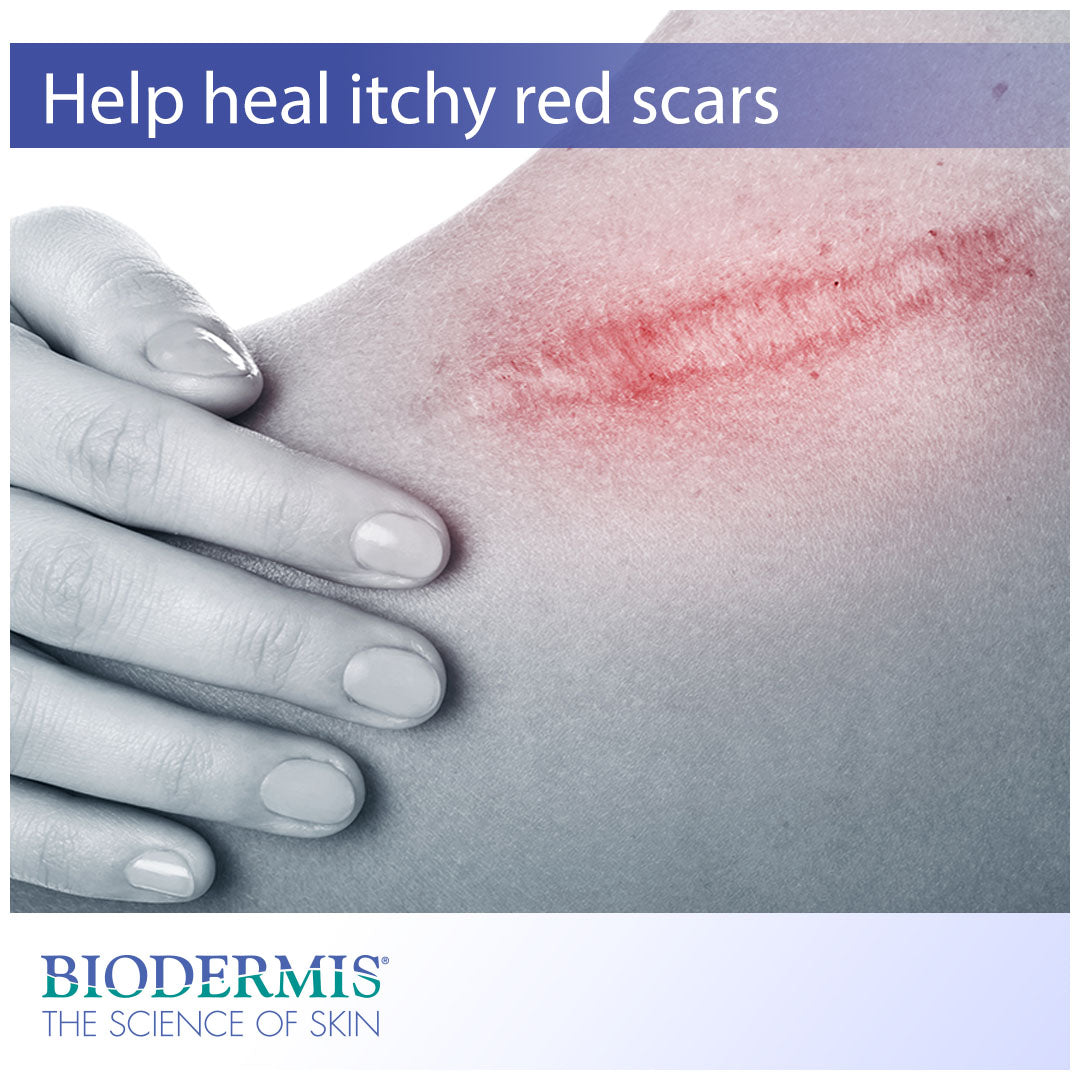Continue reading to learn more about scar tissue and what you can do to reduce scars attained from injuries or surgeries.
Scar tissue and symptoms
What many people don’t know about scar tissue is that it doesn’t contain any hair follicles or sweat and oil glands. This can expose the skin to harmful environmental factors and lead to dermal dehydration, making the scar site dry, red, and tight. Scar tissue is more vulnerable to ultraviolet radiation, so it’s advisable to protect the area from sun exposure. Collagen, the most common structural protein in the body, constitutes a significant portion of the skin’s composition. In normal skin tissue, collagen follows a basket-weave formation, with strands running in opposite directions. In scar tissue, the collagen runs in the same direction in a cross-link pattern. Scar tissue is on average 20% weaker in tensile strength and has less elasticity in comparison to normal skin tissue. This is why scars can sometimes feel tight and itchy.
Scars are the final product of an intricate and dynamic wound healing process. This process is marked by a succession of stages known as hemostasis, inflammation, proliferation, and maturation (remodeling). Inflammation is characterized by pain, redness, and swelling, which helps to ward off infection from the wound. Even after the wound has completely healed, inflammation and redness may still persist as a hypertrophic scar. Hypertrophic scars are often raised and red in color and may be itchy and painful to the touch. In more severe cases, some people may develop keloids in reaction to injury or trauma. Keloids are scars that grow past the initial boundary of the wound, creating what looks like a growth on the skin. These growths are conserved benign tumors that can be red or dark purple in color. Both hypertrophic scars and keloids develop from collagen overproduction during the final stage of wound healing.
 How to reduce scar redness and size
How to reduce scar redness and sizeSome scars will fade over time, but people who are predisposed to significant scarring might be burdened for longer durations. One way to reduce and manage scars after surgery or injury is to use silicone gel technology. Silicone gel in the form of silicone sheeting and ointments has been the doctor-approved, topical solution for scars since the 1980s. Silicone gel is a clinically-proven method that is safe and effective for all skin types.
Silicone gel works through two mechanisms of action: dermal hydration and collagen regulation. As has already been mentioned, raised, discolored scars are the result of collagen overproduction during the maturation stage of wound healing. Collagen production at the scar site can continue building up for up to two years after the initial onset of the wound. The application of silicone gel will help retain moisture at the scar bed. This helps the skin to regain its elasticity and cut back on the overproduction of collagen, leading to flatter, smoother, and less irritated scars.
Biodermis is an innovative market leader with 30 years of expertise in the medical silicone industry.Visit Biodermis.com today to explore a complete range of scar management and post-operative care solutions.
Biodermis offers custom tailored referral programs designed to simplify and reduce the cost of your patients' post-op care. Additionally, we offer professional pricing if you opt to retail our products. Give us a call at 800.322.3729, and we will be happy to provide additional details on these programs.





